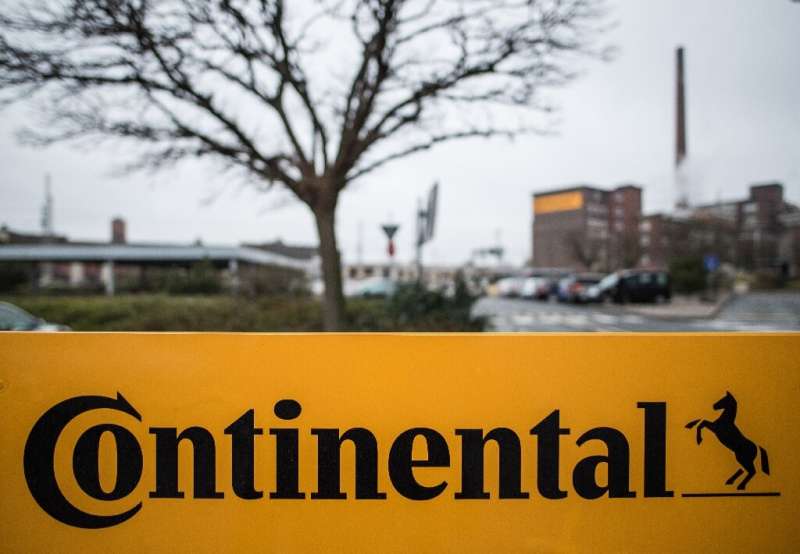One in twelve workers at Continental will be impacted by changes in the coming decade
German car parts giant Continental said Wednesday it would launch a massive restructuring including job cuts and factory closures, aiming to save hundreds of millions of euros annually in costs.
In total, 20,000 out of the group's 244,000 jobs worldwide will be "affected by changes" between now and 2029, although not all of those will vanish.
Rather, some will be shifted between sites or reassigned to new activities, Continental said in a statement.
"Continental is thus responding to the decline in global automotive production and the increase in customer demand for digital solutions," the Hanover-based company said.
It aims to slash costs by 500 million euros ($550 million) annually by 2023.
Around 4,800 jobs could go at seven sites around the world in the coming years—three in Germany and two in the United States, and one each in Italy and Malaysia.
Included were 1,800 jobs at the company's Babenhausen plant alone.
And factories in the US states of Virginia and North Carolina employing a total of 1,400 people are set to close.
But such closures "do not mean the people there will find themselves out of work," a spokesman told AFP.
Continental also plans "a large number" of new jobs in new industrial sectors linked to battery-powered cars, IT and autonomous driving, which it will partly fill via an internal jobs market that will retrain workers.
"Operational redundancies will be the very last resort," chief executive Elmar Degenhart said, "but we cannot currently rule them out".
"We are also responding proactively to the crisis in the automotive industry and, like 10 years ago, we will emerge stronger," he added.
Germany's massive car industry—with 800,000 jobs and almost five percent of national output—has suffered as trade wars have intensified and the threat of a no-deal Brexit has grown.
Meanwhile far-reaching transformations of the sector, including electrification and automated driving, require enormous investments in new technology.
© 2019 AFP
























